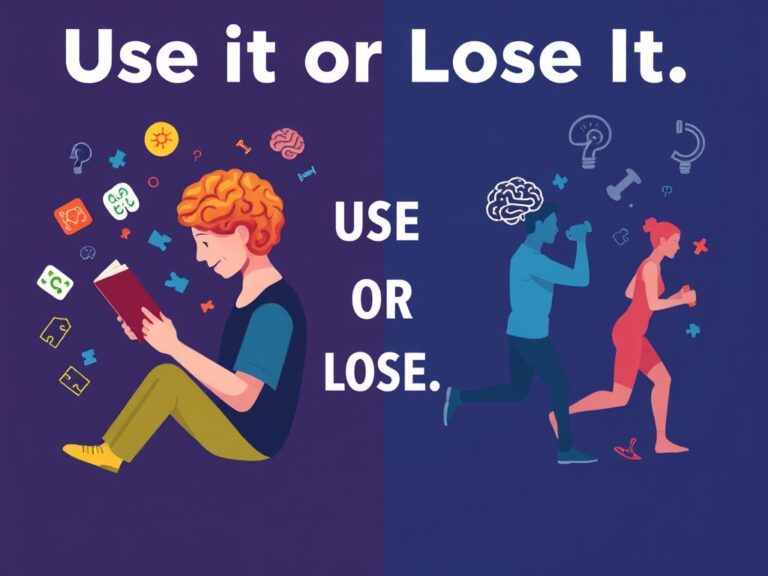What Small Straws in a Soft Wind Teach Us About Life’s Quiet Shifts
In the hustle and bustle of everyday life, it’s easy to overlook the small signs that can indicate significant changes on the horizon. We’re often so focused on major events and milestones that the subtler shifts around us go unnoticed. But just like small straws swaying in a soft wind, these quiet moments often hold deep meaning, teaching us valuable lessons about the nature of change, awareness, and growth. In this article, we will explore how paying attention to the smallest details and seemingly insignificant occurrences can offer profound insights into life’s transitions.
The Metaphor of Small Straws in a Soft Wind: What Does It Mean?
The phrase “small straws in a soft wind” evokes a serene and gentle image, but what does it actually symbolize? This metaphor represents the delicate and often imperceptible signs of change that surround us in our daily lives. The “small straws” can be seen as the little details or minor events that, when viewed individually, might seem trivial. However, when you observe them closely, they are clues to larger transformations.
The “soft wind” refers to the subtle forces that influence these changes—forces that may not be as overt as a storm but are still strong enough to guide shifts in our lives. These small signs are not loud or dramatic; they require a heightened sense of awareness to detect. Often, they come in the form of an intuitive feeling, a minor shift in someone’s behavior, or an unexpected coincidence. Recognizing these subtle signals is key to understanding the changes happening in our environment and within ourselves.
Learning to Recognize Life’s Gentle Nudges
Life’s most meaningful transitions are often preceded by subtle signs, and learning to recognize these signs is a skill that can greatly enhance our personal growth. These “gentle nudges” are everywhere, from the way relationships evolve over time to the manner in which opportunities appear seemingly out of nowhere. The challenge lies in being mindful enough to notice them.
In a world driven by constant activity and distractions, our natural inclination is to focus on the loudest, most urgent aspects of life—be it work deadlines, financial pressures, or major life events. However, life’s quiet shifts, like small straws in a soft wind, require us to slow down and become more attuned to the present moment. This attentiveness allows us to catch the faint signals that often go unnoticed, guiding us toward decisions that can ultimately shape our lives for the better.
Practices like mindfulness, meditation, and journaling can be incredibly helpful in developing this awareness. By training ourselves to be more present, we can start to notice the subtle patterns in our surroundings and in our own behavior, recognizing that small changes are often precursors to larger shifts.
How Subtle Signs Indicate Larger Changes
Imagine you’re standing in a meadow on a calm day. You see a single straw of grass bending slightly in the wind. On its own, this may seem insignificant, but as more straws begin to bend, you realize that a breeze has picked up—one that could eventually become a wind strong enough to transform the landscape. This is how change often manifests in life: it begins quietly, almost imperceptibly, with a series of small, unrelated events.
These subtle shifts can take many forms. In relationships, for example, a partner’s tone might become slightly colder, or they may become a little more distant in conversation. While easy to dismiss as a minor issue, these “small straws” can signal deeper emotional or psychological changes that, if left unaddressed, could lead to significant problems down the line.
Similarly, in the workplace, you may notice small changes in your tasks or the way your boss interacts with you. At first glance, these changes may not seem like a big deal, but they could be early indicators of a larger transformation within the company or even the onset of new career opportunities. By learning to recognize these initial signs, you can better prepare yourself for the changes to come, rather than being blindsided when they finally arrive in full force.
The Importance of Patience in Observing Subtle Shifts
Understanding the meaning behind small straws in a soft wind requires patience and reflection. Change doesn’t always happen quickly or dramatically. Often, it is gradual, creeping in through small moments over time. If you’re waiting for life’s big signals, you might miss the more understated transitions that are shaping your path.
Patience allows you to sit with these small signs and explore their deeper meaning. Instead of reacting impulsively to every minor shift, you can take the time to reflect on what these small straws are telling you. Are they hinting at something that needs your attention? Could they be the first sign of a larger opportunity or challenge? Only by giving these signs the time and space to reveal their full significance can you fully grasp the lessons they offer.
In today’s fast-paced society, where instant gratification is the norm, cultivating patience is a challenge in itself. However, it is a crucial part of understanding life’s quieter shifts. By resisting the urge to rush through every experience, you allow yourself to develop the insight necessary to decode the subtle messages life is sending your way.
How Small Straws Reflect Internal Growth and Self-Awareness
The concept of small straws in a soft wind also applies to our inner world. Just as external circumstances shift in subtle ways, our own personal growth often happens gradually, through small realizations, minor shifts in perspective, or incremental changes in behavior.
Self-awareness is key to recognizing these internal straws. We grow and evolve not only through dramatic life events but also through the accumulation of small experiences that gradually shape who we are. Perhaps you start to notice that you are less reactive in stressful situations, or you begin to feel more comfortable setting boundaries. These small victories may not seem monumental in the moment, but over time, they contribute to significant personal growth.
By tuning into these inner shifts, you can gain a deeper understanding of your own emotional and psychological evolution. Small signs of progress, such as improved emotional regulation or heightened self-compassion, are often the most lasting because they result from gradual, sustained effort rather than quick fixes.
How to Cultivate Awareness of Life’s Quiet Transitions
Becoming more attuned to life’s subtle shifts is a practice that requires both intention and consistency. There are several ways to cultivate this awareness in your daily life:
- Mindfulness Meditation: This practice helps you stay present and focused on the here and now, allowing you to become more sensitive to the small details that you might otherwise overlook.
- Journaling: Writing down your thoughts and experiences helps you track subtle patterns in your behavior, emotions, and circumstances over time.
- Active Listening: In conversations, focus on truly hearing what the other person is saying rather than planning your next response. You might pick up on nuances in their tone or body language that reveal more than their words.
- Regular Reflection: Taking time to reflect on your day or week helps you identify recurring themes or changes in your life that you might not have noticed in the moment.
By integrating these practices into your life, you can develop a heightened sense of awareness that allows you to detect the small straws in a soft wind and respond thoughtfully to the quiet shifts that are happening around you.
The Role of Intuition in Sensing Small Changes
Intuition plays a crucial role in sensing the small, subtle changes that precede larger transformations. Often, the signs of change are not immediately obvious to the rational mind, but they are felt on a deeper, intuitive level. You might have a gut feeling that something is shifting, even if you can’t pinpoint exactly what it is.
Learning to trust your intuition can be one of the most powerful ways to navigate life’s quiet shifts. Intuition is like a soft wind itself—it’s not always loud or direct, but it gently guides you toward the right path. By paying attention to these internal signals, you can make decisions that align with the subtle changes happening in your life.
Why Small Signs Should Not Be Overlooked
One of the biggest mistakes we make is overlooking small signs because they seem insignificant at the time. However, these small indicators often accumulate to form a larger picture. Ignoring them can lead to missed opportunities or unresolved issues that grow into more significant problems.
By staying attuned to the small straws in a soft wind, you can prevent minor issues from becoming major challenges. Whether in relationships, work, or personal growth, addressing small signs early on allows you to make proactive adjustments rather than reactive fixes.
Conclusion: Embracing the Lessons of Small Straws in a Soft Wind
The phrase “small straws in a soft wind” beautifully encapsulates the idea that life’s most profound changes often start with the gentlest of nudges. By cultivating awareness, patience, and trust in both external and internal signals, you can better navigate life’s subtle transitions. These small signs may seem inconsequential at first, but they are often the first whispers of significant transformations to come. In learning to recognize and respond to these quiet shifts, you unlock a deeper understanding of life’s flow and your place within it.
Read Also Our This Post: 10 Essential Tips for a Healthy Life with WellHealthOrganic

Kamran Khatri is a versatile writer and editor at ExpressZone.co.uk, bringing fresh perspectives and insightful commentary across a wide range of topics. With a passion for exploring diverse subjects—from technology, business, and finance to lifestyle, travel, and the arts—Kamran aims to inform, inspire, and engage readers through well-researched articles and thought-provoking content.
His work spans multiple categories including health, education, pets, entertainment, real estate, and sustainability, reflecting his commitment to delivering knowledge that connects with everyday life. Whether breaking down the latest trends, sharing practical tips, or highlighting cultural insights, Kamran’s writing combines clarity with creativity.
When he’s not crafting stories for ExpressZone.co.uk, Kamran enjoys keeping up with global developments, exploring innovative ideas, and connecting with readers who share his curiosity about the world.







